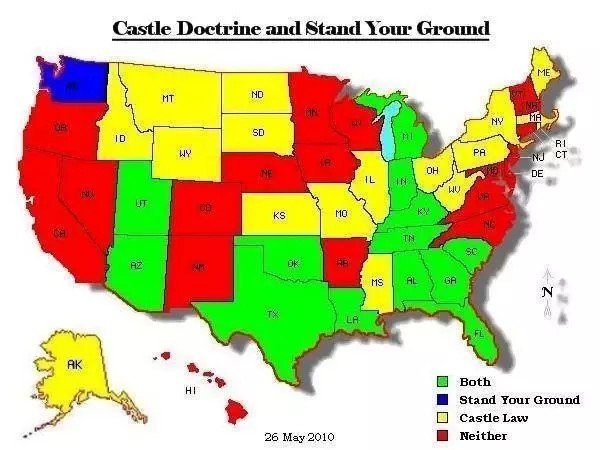Certainly, Indiana does have a “Stand Your Ground” law, which is officially codified as Indiana Code § 35-41-3-2, within the broader statutory framework of Indiana’s self-defense laws. This law, enacted in 2024, is designed to provide legal protection to individuals who use deadly force in self-defense or in defense of others in certain circumstances without any duty to retreat.

Key Elements of Indiana’s Stand Your Ground Law:

- No Duty to Retreat:
Under Indiana’s Stand Your Ground law, individuals are not required to retreat or attempt to flee before using deadly force in self-defense or defense of others. This means that if an individual reasonably believes that deadly force is necessary to protect themselves or someone else from imminent harm, they can use deadly force without first trying to retreat or escape.

- Reasonable Belief of Imminent Harm:
To invoke the Stand Your Ground defense, an individual must have a reasonable belief that deadly force is necessary to prevent imminent serious bodily harm or death to themselves or someone else. The reasonableness of the belief is determined based on the totality of the circumstances and the perspective of the individual at the time they used deadly force.
- Permitted Locations:
The Stand Your Ground law applies to any location where an individual has a lawful right to be, including their home, place of work, or any other public or private place where they are legally present. This means that the law is not limited to specific locations like one’s own property.
- Defense of Others:
Indiana’s Stand Your Ground law also allows individuals to use deadly force in defense of another person, provided that they reasonably believe that the other person is in imminent danger of serious bodily harm or death. Similar to self-defense, the individual is not required to retreat before using deadly force to protect someone else.
- Immunity from Prosecution:
Individuals who lawfully use deadly force in self-defense or defense of others under the Stand Your Ground law are immune from criminal prosecution for their actions. This means that they cannot be charged with a crime related to the use of deadly force, such as murder or manslaughter.
It’s important to note that the Stand Your Ground law does not give individuals the right to use deadly force indiscriminately. The law only provides legal protection when deadly force is reasonably believed to be necessary to prevent imminent harm. Additionally, individuals who use deadly force may still be subject to civil liability, even if they are not criminally prosecuted.






